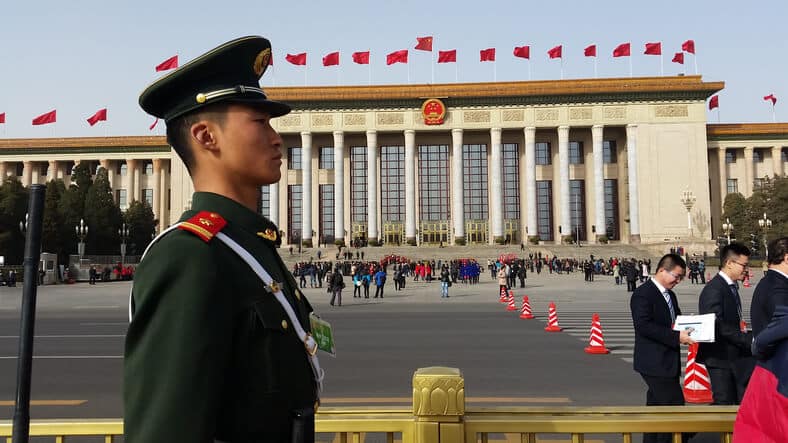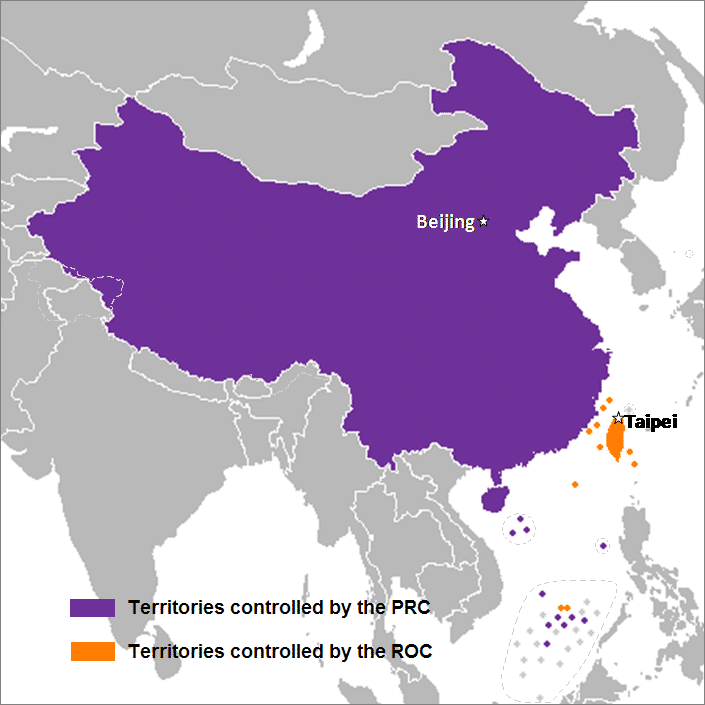Fears have continued to rise that China could be mere years away from a full-scale invasion of Taiwan. Tensions between the two countries are at a 40-year high. Chinese-American relations have also dropped to new lows, with President Joe Biden announcing yesterday that the USA would come to Taiwan’s defence if such an attack was mounted.
This comes days after Biden’s nominated ambassador to China called for cooperation with allies against the PRC, which he called Washington’s “most dangerous competitor”.
Beijing has responded to Biden’s announcement, urging America not to send the wrong signals and reaffirming their commitment to ‘no concessions’ over Taiwan.
Beijing and Washington agreed earlier this month to hold a virtual meeting between Xi Jinpping and Joe Biden before the end of the year. Talks between the two countries have been tense, with the US concerned over Chinese nuclear build-up and military expansion. And increased Chinese military intimidation of Taiwan has not been helpful.

In four consecutive days surrounding Taiwan’s National Day, China sent tens of military planes into Taiwan’s air defence identification zone (ADIZ). Although these were not incursions into Taiwan’s national airspace (which would have constituted a more directly aggressive threat), both Taiwan itself and much of its US-led ally block were angered by such unprecedented intimidation.
The incursions totalled a staggering 149 passovers, a 28% increase on September’s previous record of PLA sorties.
Taiwan’s foreign minister Joseph Wu has said the country is preparing for a Chinese invasion, after Xi Jinping announced China was prepared to annex the island by force if necessary. The possibility of seizing the pièce de résistance of Xi’s One China ‘dream’ has always been a gamble based on the odds of US intervention.

Up till now, American retaliation seemed uncertain, especially given its Cold War history of getting into Asian conflicts that later proved difficult to escape. There is no clause in the Taiwan Relations Act that obligates the US to defend Taiwan directly, only to arm it sufficiently to defend itself.
But Biden’s announcement complicates this, despite a White House official backtracking to state the President’s remarks didn’t signify a change in policy. This echoes a similar earlier suggestion by Biden in August that America would defend Taiwan, and again a White House assurance that official policy has not changed. Taiwanese officials seem sure conflict is inevitable.
It’s possible this could turn into a clash Australia gets drawn into, considering our own increased tensions with China, boosted defence spending, and recent AUKUS deal. A spokesperson for the Department of Foreign Affairs and Trade stated Australia was “concerned by China’s increased air incursions into Taiwan’s air defence zone”.
China experts say that a bloody invasion of Taiwan would be difficult for the CCP to sell to its population, who are likely to see the conflict as a painful attack on ethnic neighbours. And control over Taiwan’s largely anti-communist territory would be hard to maintain.
Global attitudes would fiercely condemn such an intervention and impose severe economic and diplomatic sanctions that would prove difficult for Beijing to weather. But Xi Jinping does seem determined to complete his legacy by reunifying and ‘harmonising’ China into a squeaky clean version of its historical peak. As China continues to grow its influence and also attempts to turn its economy inwards to create more economic resilience, anything seems possible.
Follow Maddie’s journalism journey on Twitter.
Sign Up To Our Free Newsletter